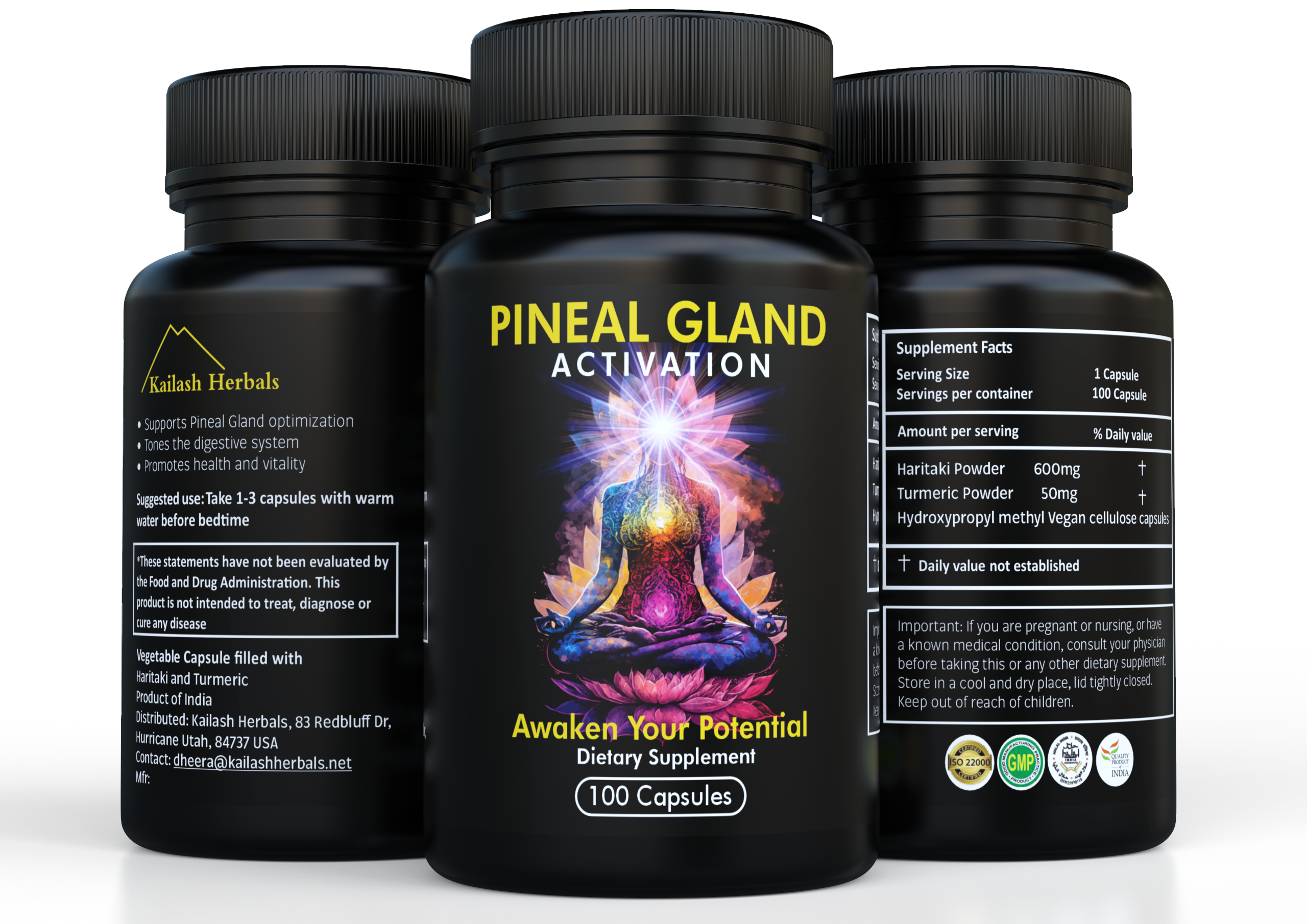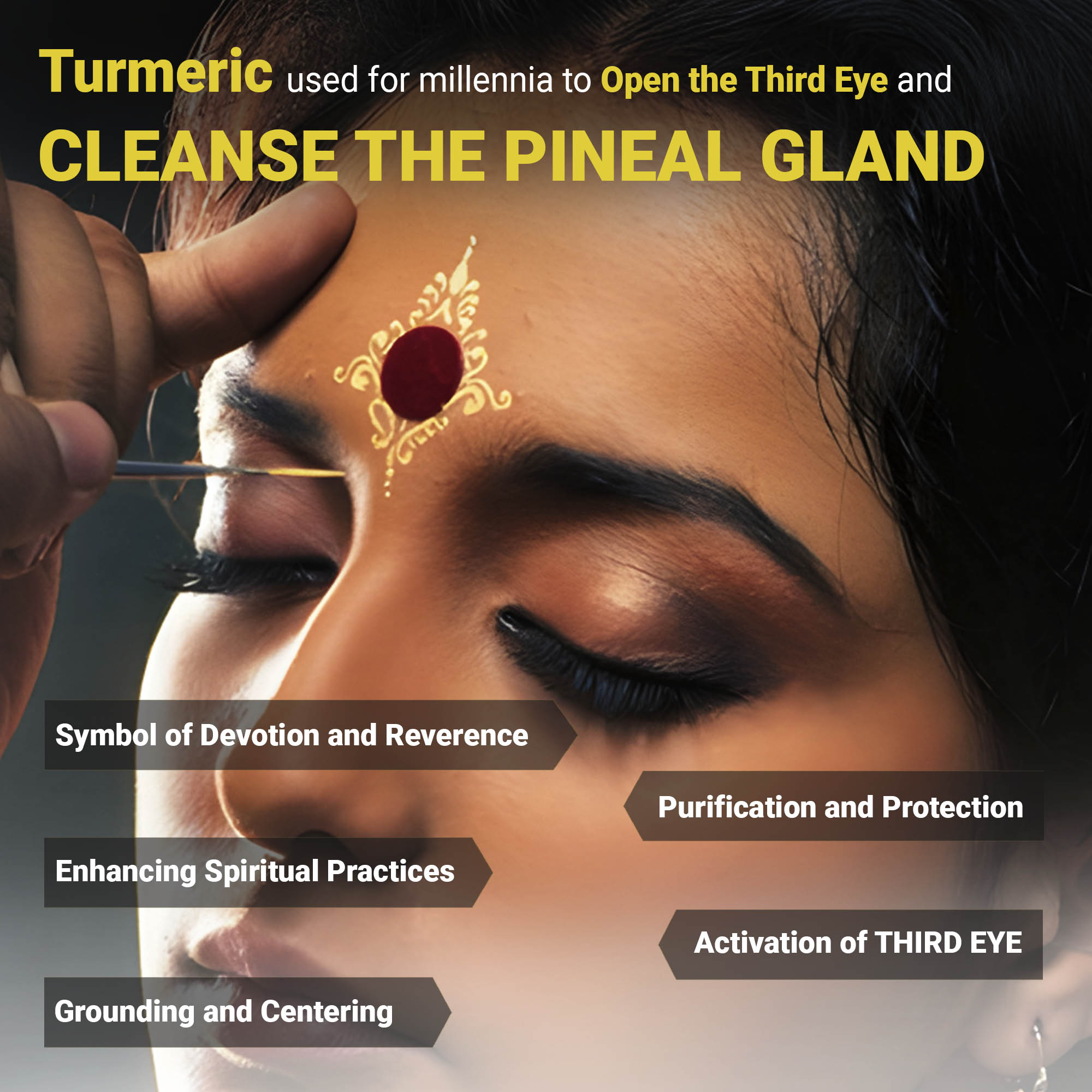12 Top Ways to Decalcify Your Pineal Gland and Awaken Your Third Eye
Deep within the center of your brain lies a tiny, pinecone-shaped gland known as the pineal gland. This unassuming structure is often referred to as the “third eye” due to its mystical associations and potential role in spiritual awakening. But beyond the esoteric, the pineal gland plays a crucial role in regulating sleep patterns, mood, and overall health through the production of melatonin, a hormone that governs our circadian rhythm [1].

However, as we age or due to various environmental factors, the pineal gland can accumulate calcium deposits, a process called calcification. This can hinder its ability to produce melatonin effectively, leading to sleep disturbances, hormonal imbalances, and potentially even cognitive decline [2].
So, how can we support the pineal gland and unlock its full potential? Here, we delve into the top methods for decalcification and explore how to nurture your inner light for improved well-being.
- Harnessing the Power of Nature: Haritaki for Pineal Support
Our journey begins with the ancient wisdom of Ayurveda. Haritaki (Terminalia chebula), a revered herb in this traditional Indian medical system, holds immense potential for pineal health. Studies suggest haritaki possesses antioxidant and neuroprotective properties, potentially protecting the pineal gland from oxidative stress and free radical damage.
A recent review published in the National Institutes of Health database highlights haritaki’s potential to improve cognitive function and even enhance memory. While research specifically on decalcification is ongoing, these findings suggest haritaki’s multifaceted benefits may extend to supporting the pineal gland’s overall health.

Kailash Herbals’ Pineal Gland Activation supplement offers a convenient way to incorporate haritaki into your routine. This herbal formula combines haritaki with turmeric, another potent anti-inflammatory herb with well-established neuroprotective properties [5]. This synergy may provide a comprehensive approach to supporting pineal health. Here is a link to find out more about this product LINK
- Embracing Darkness: Light Regulation for Melatonin Production
The pineal gland is incredibly sensitive to light. Exposure to artificial light at night, especially the blue light emitted from electronic devices, can disrupt melatonin production.
Here’s how you can create a light-friendly environment for optimal pineal function:
- Dim the lights: In the evenings, opt for warm, dim lighting, creating a calming ambiance for sleep.
- Embrace the night: Minimize screen time before bed. Consider reading a book or practicing relaxation techniques instead.
- Seek natural light: During the day, prioritize exposure to natural sunlight.
- Nourishing Your Body and Mind: Dietary Adjustments for Pineal Health
Just like any other organ, the pineal gland thrives on proper nutrition. Here are some dietary tips to support its wellbeing:
- Prioritize antioxidants: Incorporate fruits and vegetables rich in antioxidants like berries, leafy greens, and nuts into your diet.
- Limit fluoride: Excessive fluoride intake has been linked to calcification in various organs, including the pineal gland. Opt for fluoride-free toothpaste and consider filtering your drinking water.
- Stay hydrated: Water is crucial for all bodily functions, including pineal gland health. Aim for eight glasses of water daily.
- Cultivating Inner Peace: Meditation and Relaxation Techniques
Stress can negatively impact the pineal gland’s function. Meditation, yoga, and other relaxation techniques can help reduce stress and promote overall well-being, potentially creating an environment conducive to optimal pineal health
By incorporating these practices into your daily routine, you can cultivate inner peace and nurture the delicate balance within your body.
- Consulting with a Healthcare Professional
While natural methods can be beneficial, it’s crucial to consult with a healthcare professional before starting any new supplements or making significant lifestyle changes. They can help you determine the best approach for your individual needs.
6. Consume a Diet Rich in Antioxidants:
-
- Fruits and Vegetables: Incorporate plenty of colorful fruits and vegetables into your diet, such as berries, leafy greens, and carrots.
- Herbs and Spices: Use herbs like turmeric and ginger, which have powerful anti-inflammatory and antioxidant properties.
7. Reduce Exposure to Electromagnetic Fields (EMFs):
-
- Limit Screen Time: Reduce your exposure to electronic devices, especially before bed.
- Use EMF Protection Devices: Consider using devices designed to block EMFs, such as EMF-shielding phone cases and sleep mats.
8. Hydrate Properly:
-
- Drink Plenty of Water: Aim to drink at least 8 glasses of water per day.
9. Consider Herbal Supplements:
- Haritaki: This Ayurvedic herb has been shown to have antioxidant and neuroprotective properties.
- Turmeric: Turmeric’s active compound, curcumin, has powerful anti-inflammatory and antioxidant effects.

10. Get Enough Sleep:
- Establish a Regular Sleep Schedule: Go to bed and wake up at the same time each day.
- Create a Relaxing Bedtime Routine: Engage in calming activities before bed, such as reading or taking a warm bath.
11. Practice Yoga and Pranayama:
- Yoga Poses: Certain yoga poses, such as forward folds and inversions, can help stimulate the pineal gland.
- Pranayama Breathing Exercises: Deep breathing exercises can help reduce stress and improve oxygenation of the brain.
- Limit Exposure to Blue Light:
- Use Blue Light Blocking Glasses: Wear blue light blocking glasses, especially in the evening.
- Adjust Screen Settings: Reduce the blue light emitted from your electronic devices.
Remember: Decalcifying the pineal gland is a holistic process. By combining the power of natural remedies like haritaki, light regulation, dietary adjustments, and stress-reduction techniques, you can create a supportive environment for your pineal gland to flourish. This, in turn, has the potential to improve your sleep, enhance your mood, and potentially unlock a deeper sense of well-being.
Disclaimer: This blog post is for informational purposes only and should not be construed as medical advice. Always consult with a healthcare professional before starting any new supplements or making significant lifestyle changes.
Martyn Williams
Coach Martyn is a world record holding extreme expedition leader, and the first person to lead expeditions to Everest and the North and South Poles. As an entrepreneur, Martyn started the first airline in Antarctica, and also created several adventure travel and health food companies. In 2000 he created a 35,000km, human powered, 9-month journey from the North Magnetic Pole to the South Pole with young people from around the world. Martyn then went on to teach enlightenment to monks in India for 7 years. He loves exploring how to discover our ultimate human potential.
